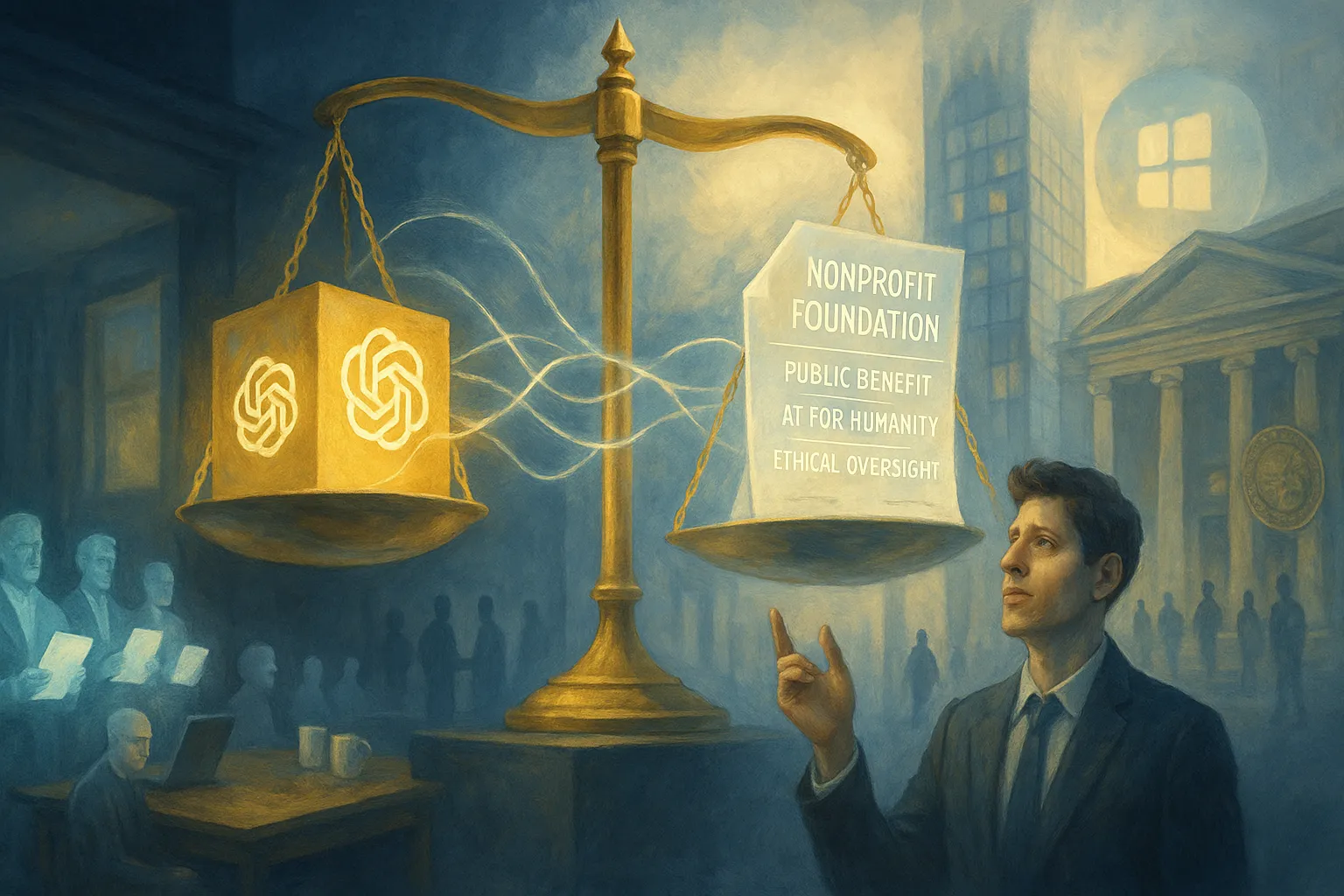OpenAI will keep its nonprofit in control of its business operations, marking a sharp turn from earlier plans. The AI company announced today it needs trillions of dollars to grow while sticking to its original mission of benefiting humanity.
The Change of Plans
Board Chairman Bret Taylor confirmed the nonprofit that started OpenAI in 2015 will stay in charge. The company's business arm will become a Public Benefit Corporation (PBC), joining companies like Patagonia and fellow AI lab Anthropic.
This decision came after talks with California and Delaware officials. These discussions shaped how OpenAI could keep pursuing its mission while raising the money it needs.
From Small Start to Big Dreams
Eight years ago, OpenAI began with researchers around a kitchen table. They had no products and no business model. Now they run ChatGPT, a service so popular they can't keep up with demand.
The company needs hundreds of billions just to run its current services. They've had to limit usage because too many people want to use their AI tools.
The plan to change didn't come easy. Elon Musk sued OpenAI, claiming it had abandoned its nonprofit mission. While a judge denied Musk's request to stop the changes immediately, the case will go to trial in spring 2026.
Other groups joined the fight. Former OpenAI employees filed court papers supporting Musk's lawsuit. Labor groups asked California officials to block the changes. Even Nobel winners and law professors wrote letters asking state officials to step in.
Money Matters
OpenAI faced tight deadlines. Reports showed they needed to finish changing by next year or risk losing recent funding. Now they're trying something different.
CEO Sam Altman says they'll move to a simpler structure where employees get stock. But this isn't a sale - it's a restructuring that keeps the nonprofit in charge while making it easier to raise money.
The New Setup
The nonprofit will become a major shareholder in the PBC. As the business grows, the nonprofit's resources will grow too. This money will help fund programs in education, health, science, and public services.
A new nonprofit commission will suggest ways to spread AI's benefits. They'll focus on making AI help more people, not just a select few.
OpenAI has changed how it sees AI's future. Early supporters thought AI should stay with trusted experts. Now the company wants to put AI tools in everyone's hands.
Scientists use ChatGPT to boost their research. Doctors use it for health problems. Coders use it to build better software. But demand keeps growing beyond what OpenAI can handle.
Looking Ahead
The company faces big challenges. They need massive funding to build advanced AI systems. But they also need strong oversight to keep those systems safe and helpful.
OpenAI argues this path - keeping nonprofit control while raising huge amounts of money - will help "democratic AI" beat "authoritarian AI." They're betting they can grow fast while staying true to their mission.
Microsoft's Role
Microsoft, OpenAI's biggest partner, will stay involved as the changes move forward. The tech giant has invested billions in OpenAI and integrates its technology into many products.
This restructuring shows how AI development has changed. What started as a research project now needs funding like major infrastructure projects. But OpenAI insists it's still not a "normal company."
Why this matters:
- OpenAI just showed that even trillion-dollar ambitions can work under nonprofit oversight. They're trying to prove that making money and doing good aren't opposites.
- This could set a pattern for other tech companies. If OpenAI succeeds, more might try balancing huge profits with public benefit. If they fail, it could push AI development toward pure profit-seeking.
Read on, my dear:
OpenAI: Evolving OpenAI’s Structure










